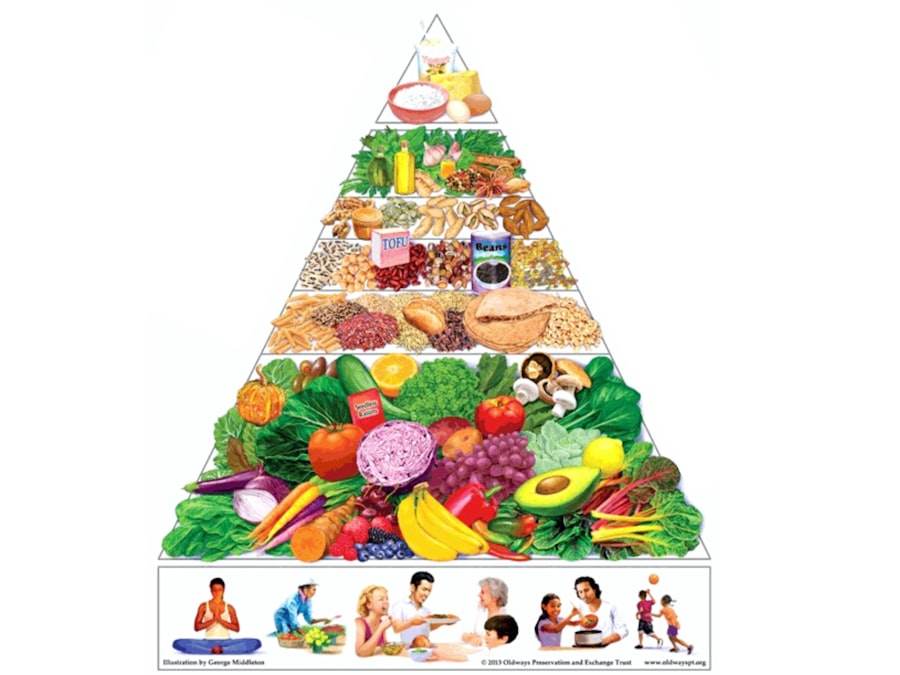As you age, your body undergoes a myriad of changes that can significantly impact your metabolic health. Metabolism refers to the biochemical processes that convert food into energy, and as you grow older, these processes can slow down. This slowdown can lead to weight gain, decreased energy levels, and an increased risk of chronic diseases such as diabetes and heart disease.
Understanding senior metabolic health is crucial for maintaining vitality and overall well-being in your later years. You may find that factors such as hormonal changes, muscle mass reduction, and lifestyle habits all play a role in your metabolic rate. For instance, as you age, your body tends to lose muscle mass, which is essential for burning calories efficiently.
This loss can lead to a decrease in your basal metabolic rate (BMR), meaning you burn fewer calories at rest. Additionally, changes in hormone levels, particularly insulin and cortisol, can affect how your body processes nutrients. Recognizing these changes can empower you to take proactive steps toward maintaining a healthy metabolism.
Key Takeaways
- Senior metabolic health can be influenced by diet, physical activity, and hydration.
- Nutrient-rich foods and proper meal planning are essential for senior metabolic health.
- Protein is important for seniors to maintain muscle mass and overall health.
- Managing carbohydrate intake is crucial for controlling blood sugar levels in seniors.
- Seeking professional guidance can help optimize senior metabolic health and overall well-being.
The Role of Diet in Senior Metabolic Health
Your diet plays a pivotal role in shaping your metabolic health as you age. The foods you choose to consume can either support or hinder your metabolic processes. A balanced diet rich in whole foods can help you maintain a healthy weight, provide essential nutrients, and reduce the risk of chronic diseases.
Conversely, a diet high in processed foods, sugars, and unhealthy fats can exacerbate metabolic issues and lead to weight gain. When considering your dietary choices, it’s essential to focus on nutrient density rather than calorie counting alone. This means prioritizing foods that are rich in vitamins, minerals, and other beneficial compounds while being lower in empty calories.
By doing so, you can ensure that your body receives the necessary nutrients to function optimally, which is particularly important for maintaining energy levels and supporting overall health as you age.
Nutrient-Rich Foods for Senior Metabolic Health

Incorporating nutrient-rich foods into your diet is vital for promoting senior metabolic health. Foods such as fruits, vegetables, whole grains, lean proteins, and healthy fats should be staples in your meals. These foods not only provide essential nutrients but also help regulate blood sugar levels and support healthy digestion.
For instance, leafy greens like spinach and kale are packed with vitamins A, C, and K, while fruits like berries offer antioxidants that combat oxidative stress. Whole grains such as quinoa, brown rice, and oats are excellent sources of fiber, which aids in digestion and helps maintain stable blood sugar levels. Lean proteins like chicken, fish, beans, and legumes are crucial for preserving muscle mass and supporting metabolic functions.
Additionally, incorporating healthy fats from sources like avocados, nuts, and olive oil can provide sustained energy and promote heart health. By focusing on these nutrient-dense foods, you can create a balanced diet that supports your metabolic health.
The Importance of Protein for Seniors
| Benefits of Protein for Seniors | Explanation |
|---|---|
| Supports Muscle Health | Protein helps maintain muscle mass and strength, which is important for seniors to prevent frailty and falls. |
| Supports Bone Health | Protein is essential for maintaining bone density and reducing the risk of osteoporosis in seniors. |
| Supports Wound Healing | Protein is necessary for the body to repair and heal wounds, which can be slower in seniors. |
| Supports Immune Function | Protein plays a role in supporting the immune system, helping seniors fight off infections and illnesses. |
| Supports Overall Health | Protein is essential for overall health and well-being, helping seniors maintain energy levels and cognitive function. |
Protein is an essential macronutrient that plays a significant role in senior metabolic health. As you age, maintaining muscle mass becomes increasingly important for preserving strength and mobility. Consuming adequate protein helps prevent muscle loss associated with aging and supports recovery from illness or injury.
It also plays a crucial role in various bodily functions, including hormone production and immune response. You may want to aim for a protein-rich diet that includes a variety of sources. Animal-based proteins such as fish, poultry, eggs, and dairy products are excellent options due to their complete amino acid profiles.
However, if you follow a plant-based diet or prefer vegetarian options, legumes, nuts, seeds, and whole grains can also provide sufficient protein when combined appropriately. Ensuring that you include protein in every meal can help stabilize blood sugar levels and keep you feeling full longer.
Managing Carbohydrate Intake for Senior Metabolic Health
Carbohydrates are often misunderstood when it comes to senior metabolic health. While they are an essential source of energy, not all carbohydrates are created equal. As you age, it becomes increasingly important to manage your carbohydrate intake wisely to maintain stable blood sugar levels and prevent weight gain.
Focusing on complex carbohydrates rather than simple sugars can make a significant difference in how your body processes these nutrients. Complex carbohydrates found in whole grains, legumes, fruits, and vegetables provide sustained energy and are rich in fiber. Fiber not only aids digestion but also helps regulate blood sugar levels by slowing down the absorption of glucose into the bloodstream.
By choosing complex carbohydrates and monitoring portion sizes, you can support your metabolic health effectively.
The Role of Fats in Senior Metabolic Health

Fats often get a bad reputation; however, they are an essential component of a healthy diet, especially for seniors. Healthy fats play a crucial role in hormone production, nutrient absorption, and brain health. Incorporating sources of unsaturated fats into your diet can help improve cholesterol levels and reduce the risk of heart disease—conditions that become increasingly important as you age.
You may want to focus on including sources of omega-3 fatty acids such as fatty fish (like salmon), walnuts, flaxseeds, and chia seeds in your meals. These fats have anti-inflammatory properties that can benefit joint health and cognitive function. Additionally, monounsaturated fats found in olive oil and avocados can support heart health while providing a satisfying flavor to your dishes.
By embracing healthy fats in moderation, you can enhance your overall metabolic health.
Hydration and Senior Metabolic Health
Hydration is often overlooked but is vital for maintaining optimal metabolic health as you age. Your body’s ability to sense thirst diminishes with age, making it easy to become dehydrated without realizing it. Proper hydration supports various bodily functions including digestion, nutrient absorption, and temperature regulation—all of which are crucial for maintaining a healthy metabolism.
You should aim to drink plenty of water throughout the day while also incorporating hydrating foods into your diet. Fruits like watermelon and cucumbers have high water content and can contribute to your daily hydration needs. Herbal teas or broths can also be excellent options for staying hydrated without added sugars or calories.
By prioritizing hydration, you can support your metabolism and overall well-being.
The Impact of Micronutrients on Senior Metabolic Health
Micronutrients—vitamins and minerals—play an essential role in supporting senior metabolic health. These nutrients are involved in numerous biochemical processes that regulate metabolism and energy production. For instance, B vitamins are crucial for converting food into energy while vitamin D supports calcium absorption for bone health.
As you age, the risk of micronutrient deficiencies increases due to factors such as decreased appetite or changes in digestion. You may want to focus on consuming a variety of colorful fruits and vegetables to ensure you’re getting a broad spectrum of vitamins and minerals. Additionally, consider discussing with your healthcare provider whether supplementation might be necessary to meet your specific needs.
Meal Planning for Senior Metabolic Health
Effective meal planning is key to maintaining senior metabolic health. By taking the time to plan your meals ahead of time, you can ensure that you’re making nutritious choices that align with your health goals. Start by creating a weekly menu that incorporates a variety of nutrient-dense foods while considering portion sizes.
When planning meals, aim for balance by including protein sources, healthy fats, complex carbohydrates, and plenty of fruits and vegetables on your plate. Preparing meals in advance can also help you avoid the temptation of unhealthy convenience foods when hunger strikes. Additionally, consider involving family members or friends in meal preparation; this not only makes cooking more enjoyable but also fosters social connections that are vital for mental well-being.
The Benefits of Regular Physical Activity for Senior Metabolic Health
Regular physical activity is one of the most effective ways to support senior metabolic health. Engaging in exercise helps maintain muscle mass, boosts metabolism, improves cardiovascular health, and enhances overall well-being. Whether it’s walking, swimming, or participating in group fitness classes tailored for seniors, finding an activity you enjoy is key to staying active.
You may want to aim for at least 150 minutes of moderate-intensity aerobic activity each week combined with strength training exercises on two or more days per week. Incorporating flexibility exercises such as yoga or stretching can also improve mobility and reduce the risk of injury. By making physical activity a regular part of your routine, you’ll not only support your metabolism but also enhance your quality of life.
Seeking Professional Guidance for Optimizing Senior Metabolic Health
As you navigate the complexities of senior metabolic health, seeking professional guidance can be invaluable. Registered dietitians or nutritionists specializing in geriatric care can provide personalized advice tailored to your unique needs and preferences. They can help you develop a balanced meal plan that considers any medical conditions or dietary restrictions you may have.
Additionally, consulting with healthcare providers about exercise programs or physical therapy options can further enhance your metabolic health journey. They can offer insights into safe activities that align with your fitness level while addressing any concerns related to aging or chronic conditions. By seeking professional guidance, you empower yourself with the knowledge and resources needed to optimize your senior metabolic health effectively.
In conclusion, understanding senior metabolic health is essential for maintaining vitality as you age. By focusing on a balanced diet rich in nutrient-dense foods while managing macronutrient intake wisely—especially protein and healthy fats—you can support your metabolism effectively. Staying hydrated and ensuring adequate micronutrient intake further enhances overall well-being.
Regular physical activity combined with thoughtful meal planning will help you thrive during this stage of life while seeking professional guidance ensures that you’re on the right track toward optimal health.
In recent years, the importance of maintaining metabolic health through diet has become increasingly evident, especially for seniors. A well-balanced diet can significantly impact energy levels, cognitive function, and overall well-being in older adults. For those interested in exploring this topic further, an insightful article on senior metabolic health and diet can be found on the Explore Senior Health website. This resource provides valuable information on how dietary choices can influence metabolic processes and offers practical tips for seniors looking to optimize their health. To read more, visit the article on Explore Senior Health.
WATCH THIS!🧠 The Breakfast Mistake That Fuels Senior Memory Loss
FAQs
What is senior metabolic health?
Senior metabolic health refers to the overall functioning of the body’s metabolism in older adults. This includes how the body processes and uses energy from food, as well as how it regulates blood sugar, cholesterol, and other important metabolic functions.
Why is senior metabolic health important?
Maintaining good metabolic health is crucial for seniors as it can help prevent chronic conditions such as diabetes, heart disease, and obesity. It also plays a key role in maintaining overall energy levels and vitality as we age.
How does diet affect senior metabolic health?
Diet plays a significant role in senior metabolic health. A balanced diet that includes a variety of nutrients, such as lean proteins, healthy fats, and complex carbohydrates, can help support healthy metabolism and prevent metabolic disorders.
What are some dietary recommendations for improving senior metabolic health?
Some dietary recommendations for improving senior metabolic health include consuming plenty of fruits and vegetables, choosing whole grains over refined grains, limiting added sugars and processed foods, and staying hydrated with water.
Are there specific nutrients that are important for senior metabolic health?
Yes, certain nutrients are particularly important for senior metabolic health, including fiber, omega-3 fatty acids, antioxidants, and vitamins such as B vitamins and vitamin D. These nutrients can support healthy metabolism and overall well-being in older adults.
What are some lifestyle factors that can impact senior metabolic health?
In addition to diet, other lifestyle factors such as regular physical activity, adequate sleep, and stress management can also have a significant impact on senior metabolic health. Maintaining a healthy weight and avoiding smoking and excessive alcohol consumption are also important for metabolic health.
